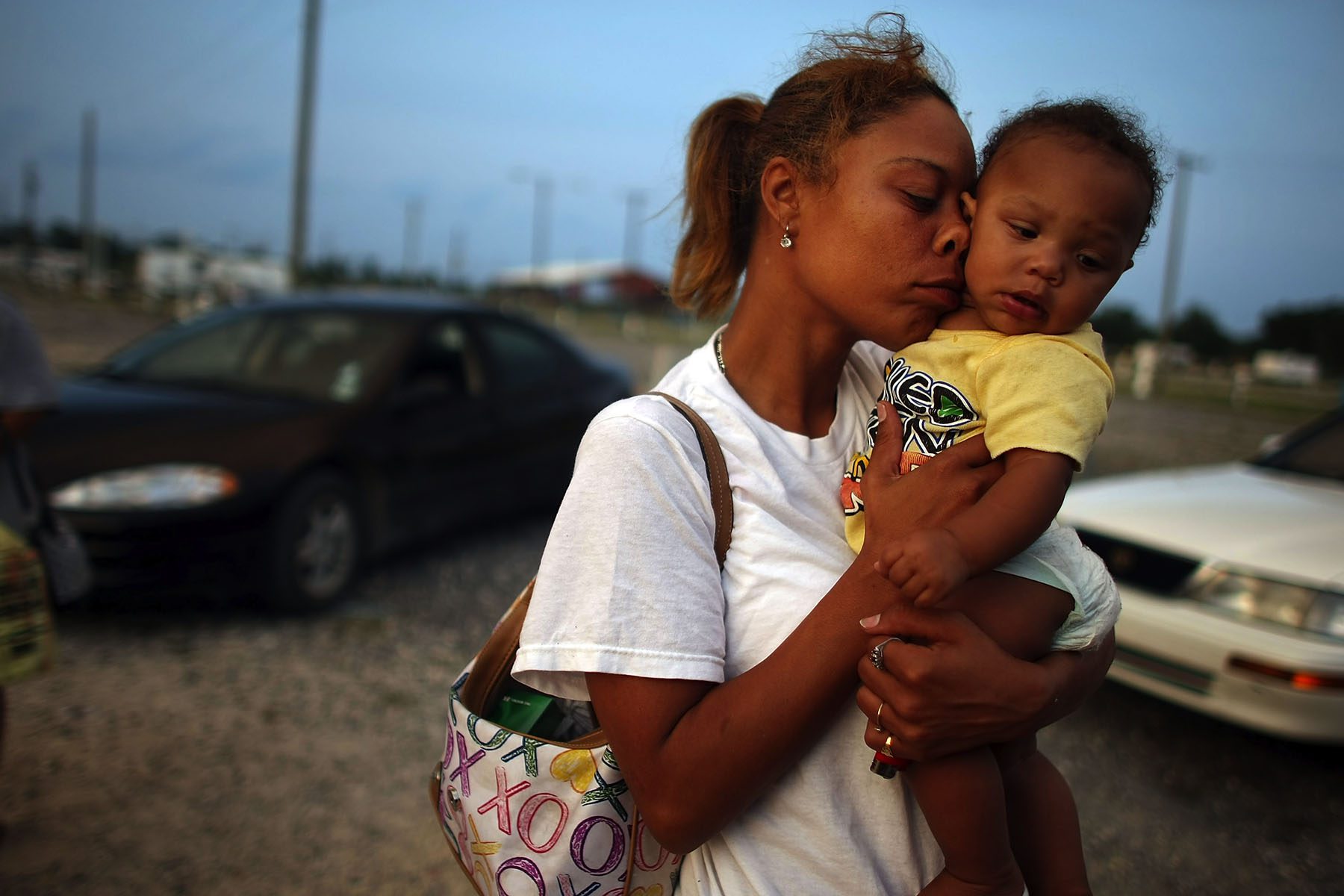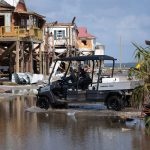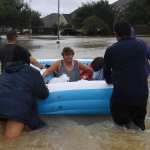Ida, Zeta, Laura, Gustav, Rita: Each hurricane that barrels through Louisiana triggers for residents memories of Hurricane Katrina, the most expensive natural disaster in U.S. history. The storm brought national attention to governmental failures leading up to and following the crisis and led to congressional hearings and reports.
The 16 years since Katrina have seen more hurricanes, more flooding and more deaths in Louisiana; it is among the most disaster-prone states in the country. For Ashley Shelton, that means facing story after story of families who have lost everything.
“It just takes you back to every single conversation you’ve ever had where grown folks who have worked hard all their lives have to just grieve what has been lost, and grieve what they know may not ever come,” Shelton, the executive director of the local nonprofit Power Coalition for Equity and Justice, told The 19th.
That cycle repeated once again at the end of August, when Hurricane Ida brought heavy flooding, strong winds and power outages to the state’s river parishes between New Orleans and Baton Rouge. Once again, Shelton and her peers stepped in.
Black women like Shelton have long been on the front lines of disaster preparation and response throughout the state, fulfilling critical needs for their communities when state and federal help has lagged. They take pride in this service, but recognize the systemic inequities that leave behind people of color, immigrants and low-income communities. A growing body of research highlights the ways these groups — particularly women and LGBTQ+ people — are disproportionately harmed by environmental hazards and climate change. Even after Hurricane Katrina underscored the exacerbated effects of inequality on climate events in Louisiana and beyond, efforts to address those issues have been mixed, organizers say.
One of the most heartbreaking things for one advocate, Andreanecia Morris, is that the same people — not just the same types of people, but the exact same people — continue to be harmed by disasters, whether it’s the COVID-19 pandemic or climate change.
“It’s not an accident, not God really trying to see what the people in the river parishes can bear. These are systemic inequities that are rooted in anti-Black, anti-poor, anti-women and anti-children bias,” Morris, the executive director for the fair housing group HousingNOLA, said in a press call.
The Rev. Jennifer Jones-Bridgett, a board member of the advocacy nonprofit Faith in Action, said these repeated blows have traumatized residents and the community leaders who work to help them. When Hurricane Ida made landfall, many people had not yet recovered from past climate destruction or from the pandemic in Louisiana.
With Ida, roofs were torn off homes, people were left without power for weeks and uncollected garbage piled in the streets. Current estimates indicate Ida could be among the costliest hurricanes in the country. On Aug. 29, the day Ida reached the Louisiana coast, Gov. John Bel Edwards, a Democrat, announced that his request for a presidential major disaster declaration had been approved, triggering long-term federal recovery programs. Thirty days after the storm hit, the Federal Emergency Management Agency responsible for providing aid announced that “nearly 500,000 individuals and households have been approved for more than $660 million in assistance.”
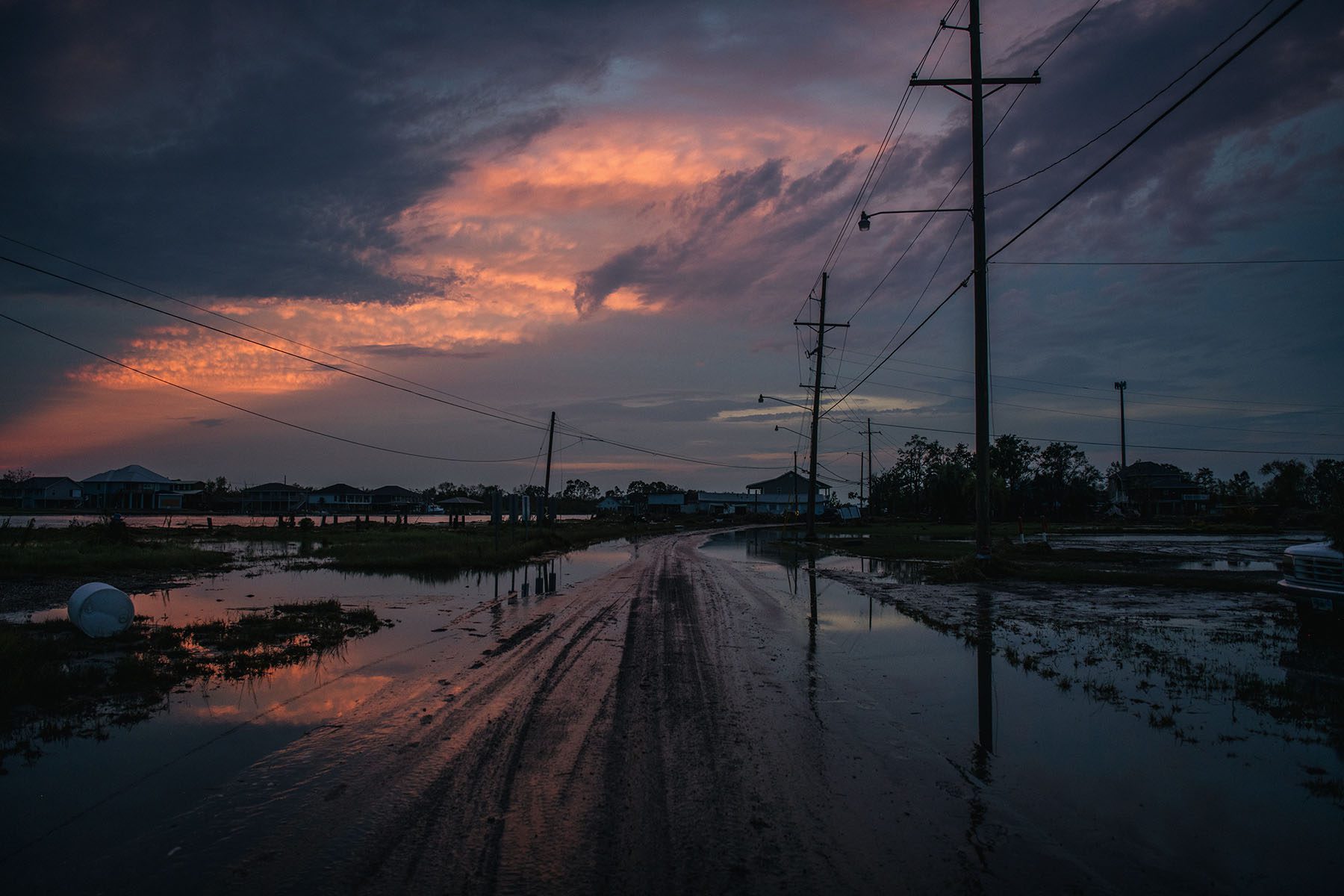
But organizers said the difficulty receiving federal assistance has been a key source of frustration for people disproportionately impacted by Ida and prior climate events. Analysis of government data in recent years shows that FEMA gives more money to White business owners and residents and the areas they live, even when the damage is comparable.
Another look by NPR at the disparities for low-income residents found that poor renters were 23 percent less likely than higher-income renters to get housing assistance between 2014 and 2018. Poor homeowners received about half as much money as higher-income homeowners to rebuild their homes, “disparities that researchers say cannot be explained by relative repair costs,” the report said.
Oftentimes people will have to apply multiple times for FEMA aid, organizers told the 19th, or they may have trouble accessing and navigating the FEMA website.
Ursula Price, executive director of the New Orleans Workers’ Center for Racial Justice, shared the story of a woman who had been living out of her car for weeks after Hurricane Ida because she had been denied hotel assistance from FEMA. Price said despite the woman’s circumstances, she tried to reject taking a free generator and encouraged the volunteers to give it to families with small children.
“What’s upsetting is that it’s deja vu. Now, I won’t say there hasn’t been any progress in New Orleans, but it was very upsetting for me to see that other parts of Louisiana are like 15 years ago for New Orleans,” Price said.
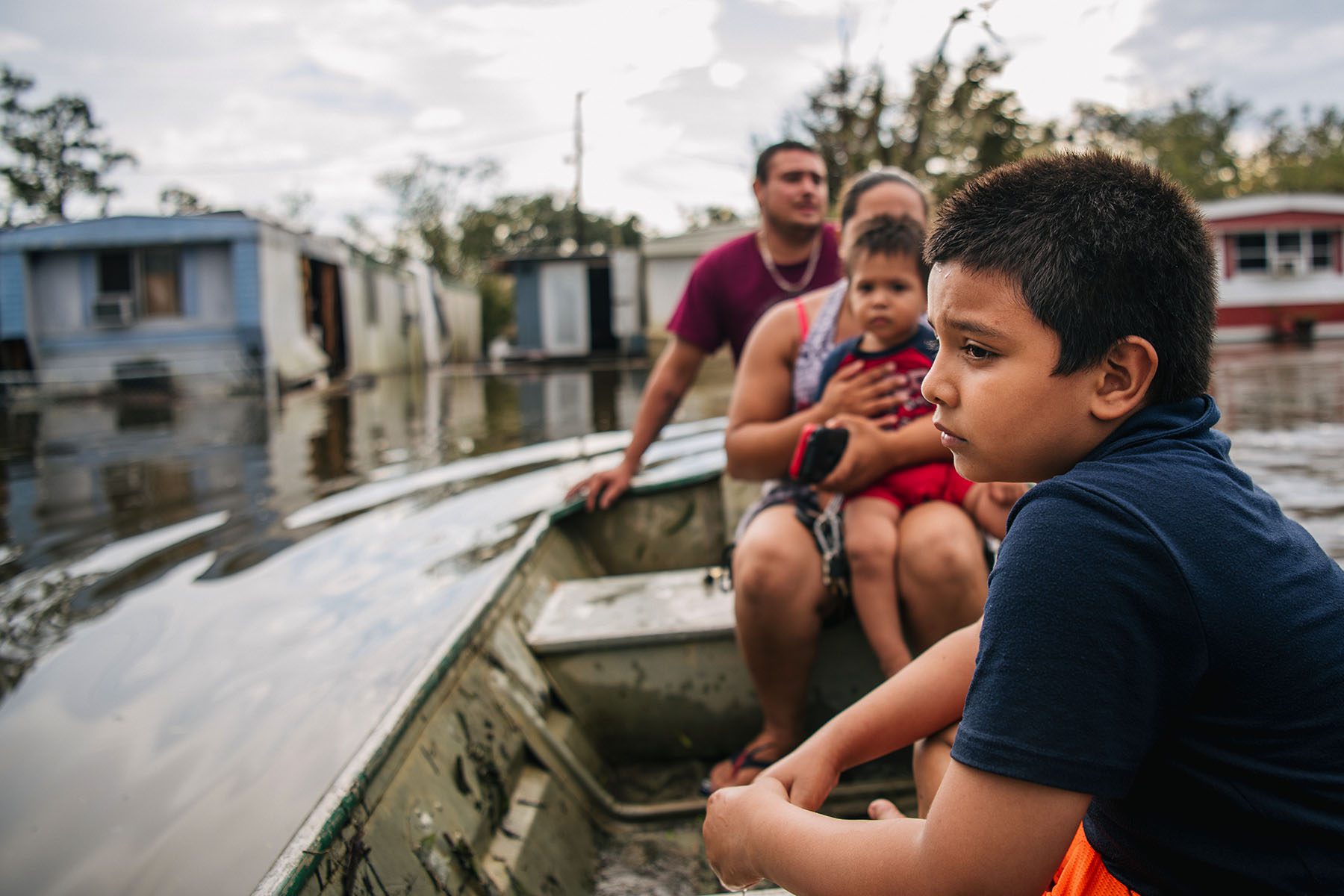
FEMA under President Joe Biden has shown a new focus on equity. The agency, led by its first woman administrator Deanne Criswell, announced initiatives in July to engage stakeholders and examine issues with access and distribution. Four days after Hurricane Ida hit, FEMA announced more changes seeking to improve access: expanding the types of documentation it accepts to prove home ownership or rental occupancy, expanding the financial assistance provided to cover disaster property damage and expanding financial assistance for disaster-caused disability.
“We are fully committed to meeting communities where they are when we deliver disaster assistance,” FEMA spokesperson Jaclyn Rothenberg wrote in an email, adding that the recent changes “reflect our continued dedication to every disaster survivor’s road to recovery. This is simply the beginning at FEMA, as we work to infuse equity across the agency and better serve our communities.”
Nearly five weeks later on October 4, Edwards announced that FEMA authorized a Hurricane Ida Sheltering Program in Louisiana to provide safe temporary housing. It is unclear at this point how people will be selected for the program.
Amid the confusion and uncertainty remains for many residents, organizations like the Power Coalition for Equity and Justice have stepped in. Within the first nine days after the storm the Power Coalition provided about $150,000 in direct cash assistance to residents. It also created a cheat sheet to help people understand the FEMA assistance process, distributed food, medical equipment, diapers and more.
Resilience Force, a national nonprofit partnered with the city of New Orleans to train and employ workers to help with pandemic and disaster relief efforts that included setting up food distribution sites and doing home deliveries and wellness checks to the most vulnerable people.
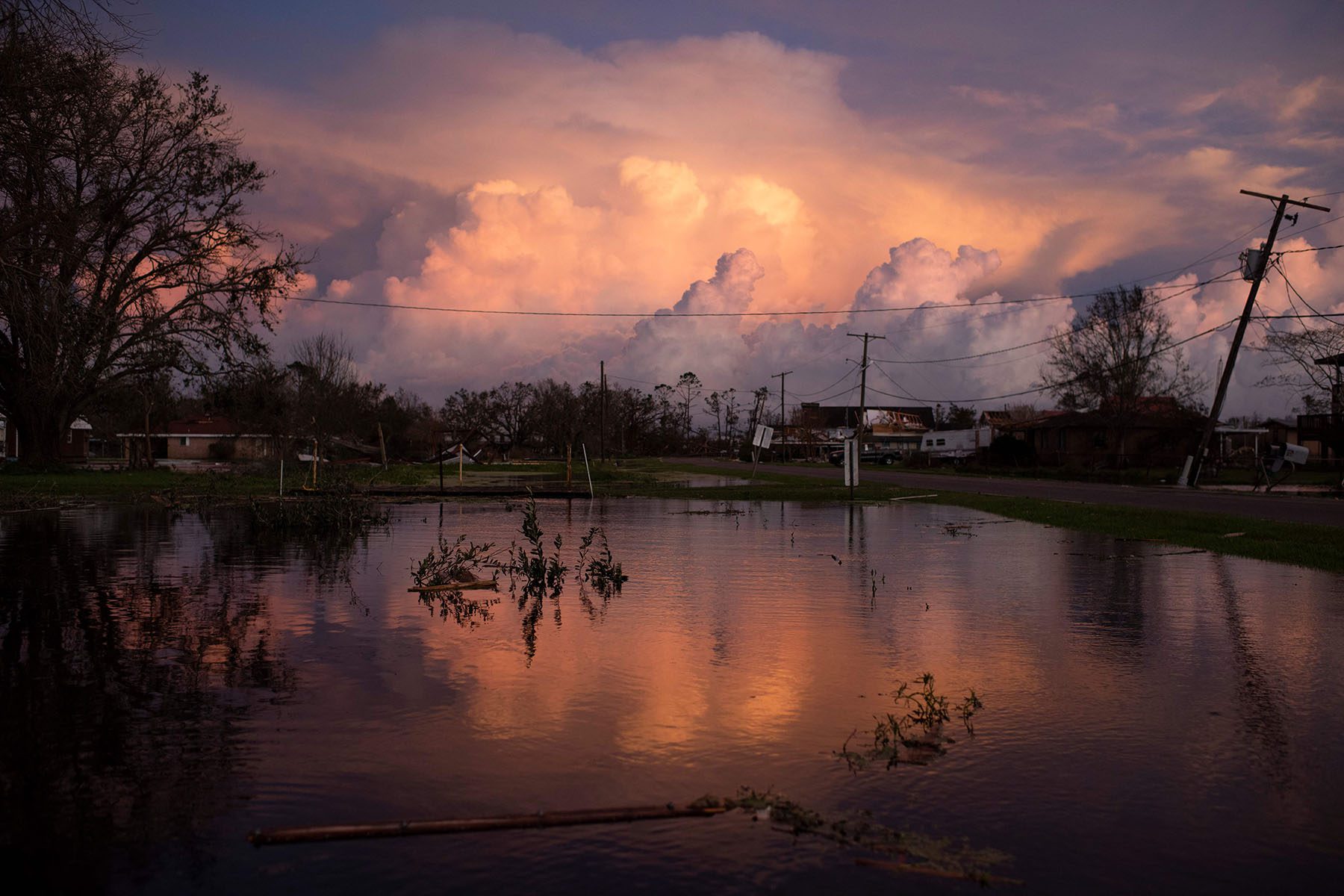
The Louisiana director of Resilience Force, LaTanja Silvester, said nonprofits like hers are able to begin supporting people after a storm more quickly than federal agencies. In many cases, having workers who are also members of the hard-hit neighborhoods enables the local organizations to provide help that is culturally competent and aware of people’s specific needs, she said.
“It’s important for us to make certain that we’re continually bringing people into this work who are from the communities we service,” Silvester said. “There are trusted individuals who can communicate to people who have discomfort with bureaucracies in government and the health care system because of all of the disadvantages.”
Shelton of the Power Coalition said government officials should work to develop and invest in programs like the New Orleans Resilience Corps, which provide employment opportunities and a workforce dedicated to disaster preparation. She also noted that in the aftermath of a storm people need access to quicker, more immediate relief, including direct cash assistance. Part of strengthening this process should involve structural changes to how FEMA evaluates and approves people for assistance, multiple organizers said.
In addition to making the disaster aid process more efficient, the federal government can do more to recognize and address the role of racism and economic inequality in how disasters affect certain groups, said Tanya Corbin, the chair for the Department of Security and Emergency Services at Embry–Riddle Aeronautical University. In her research, Corbin determined that 110 federal policies linked to Katrina were enacted after the storm, but none of them took on the “really societal systemic problems that made Katrina such a failure,” she said. Nor did they address the legacy of racism that contributed to the disaster — an issue that was highlighted by environmental justice advocates in congressional hearings.
Biden has called for centering equity and racial justice into a robust climate plan. Some focus areas of Biden’s proposal are included in the infrastructure and reconciliation bills currently being negotiated in Congress, though it’s unclear what any final package might look like and how much it will cost.
As climate disasters become more frequent and severe, Shelton said the immediate months and years ahead will be crucial for substantive changes that can help vulnerable residents in states like Louisiana. “We’re at a pivotal point that I think folks cannot ignore,” Shelton said. “If we don’t get this right, then I don’t know where we go from here. I don’t know if we recover with the multiple blows that we’ve taken.”
